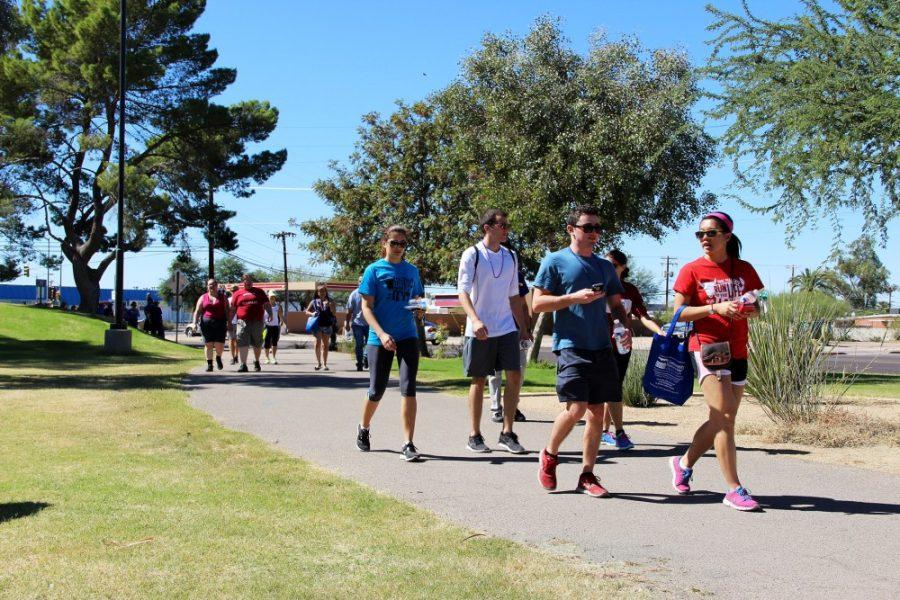Campus Health Service partnered with several community organizations for Tucson Out of the Darkness Walk, aimed at raising awareness about the issues surrounding suicide.
Hundreds of people participated in the community walk on Sunday, which consisted of a three-mile loop around Reid Park. The walk, held in conjunction with the Tucson Recovery Expo, brought together community organizations to provide resources and information about recovery programs that deal with mental health issues.
“Many times, people with depression or anxiety can feel alone and like they don’t have any other options,” said Kristine Hall, vice president of marketing and development for CODAC Behavioral Health Services. “So this event raises awareness that there are other options, that there are people who love and support them … and that suicide is not the only choice.”
The event is intended to honor the families of suicide victims, said Steve Schiro, board member of the Arizona chapter of the American Foundation for Suicide Prevention. The AFSP is a national non-profit organization intended to build awareness, education and research associated with mental health issues and suicide.
Schiro became involved with the AFSP after his son committed suicide in 2011. He said suicide is the second leading cause of death on college campuses.
Project Lifeline, a program devoted to raising awareness about suicide, the risk factors associated with it and reducing the stigma of getting help, was also present at the walk.
“I think there’s an assumption that our students are young and healthy, [and that] because they’re in school they must be doing well,” said Peggy Glider, coordinator for evaluation and research at Campus Health and project director of Project Lifeline.
Campus Health also offers counseling through its Counseling and Psych Services department. Laura Orlich, a counselor at CAPS, said she recommends that students reach out for help if they need it.
“We want the entire campus community to know what the signs [of mental illness] are,” Orlich said. “If someone’s struggling, we want them to recognize that. We want them to know how to ask the question, ‘Are you considering suicide?’”
Greg Daniels, a public health senior and an intern for Project Lifeline, spoke at the event and said he has attempted suicide three times.
He emphasized the importance of increasing the “visibility of the issue.”
“That was one of the big things when I was younger. I just didn’t think anybody cared,” he said. “So, it’s nice to know that people actually do.”
– Follow Mark Armao @MarkArmao









